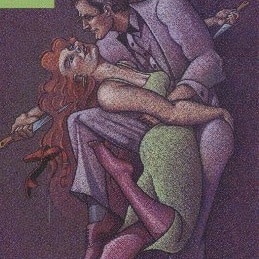Ever since Rod Serling brought topical themes – from racism to xenophobia to anti-war sentiments – into America’s unsuspecting and often oblivious living rooms via The Twilight Zone, genre fans have countered charges that the context of a literary or even cinematic work doesn’t matter as much as the message it contains.
Popular entertainment has always been a controversial source of both education and entertainment, often denigrated by cerebral cultural observers, condescending academics and other self-declared gatekeepers of our common culture as totally irrelevant or worse, as sheer trash. However, enterprising authors going back at least as far as Shakespeare, then onto the likes of H.G. Wells, Jules Verne, Edgar Allan Poe, Arthur Conan Doyle, Mary Shelley, Robert Louis Stevenson, and many other influential visionaries, have managed to move, inspire, provoke and enlighten mass audiences by embedding serious issues within a seemingly exploitative framework. Now that superheroes and spaceships dominate our big screens – and dragons, gladiators, robots, vampires, gangsters and other familiar genre figures are ubiquitous on the small one – the pervasive presence of “pulp” cannot be denied or dismissed as mere frivolous distraction. The fact is, most people want to escape reality via fantasy, and if they can learn something about our actual world while they’re at it, all the better. It’s a win-win. So the fact that so many New York bigwigs – and even Hollywood, where very few if any “genre” films are ever nominated for Oscars other than categories like Best Special Effects - remain so opposed to honoring anything outside their restrictive boundaries of acceptable quality is increasingly irrelevant. The truth is the old guard feels threatened by more than just DIY technology allowing not just indie authors but also filmmakers, artists and musicians their own public platforms, bypassing the historical vetting process and taking their work directly to the public. This new freedom also fosters and rewards experimentation while providing fresh voices a chance to thrive and prosper, amid all the more formally pre-fabricated, conservatively commercialized products in the marketplace. That means the previous status quo is losing its power to dictate public tastes. Non-conformity is becoming the new norm. "With Great Power..." Our responsibility as indie authors and publishers is to make good on our own promises, meaning we respect our readers and patrons by supplying work that is worthy of their time, attention, and especially money. This means we – whether operating solo or as part of a small press collective - issue books that are as professionally edited, designed and written as anything produced by the major companies. There is no excuse for sloppiness or laziness. In fact, we’re held to even higher standards of accountability, due to the fact we're essentiallyrunning our own small business. It also means creating characters and situations that, no matter how outrageous or outlandish by conventional standards, are realistic and relatable to the everyday person. We’re all bonded by human nature and universal experiences, which transcend all artificial barriers, even – or especially - in Art. Let’s live up to the challenge and show everyone in the literary world that what we’re offering isn’t disposable, self-indulgent garbage, but relevant and even revolutionary contributions to the society of honest and inventive individual expression. PHOTO: WILL VIHARO |
Categories
All
Archives
November 2023
|
|
Locations:
New Orleans, LA Nashville, TN |
|
Digital Media Ghost @2020
|



 RSS Feed
RSS Feed
